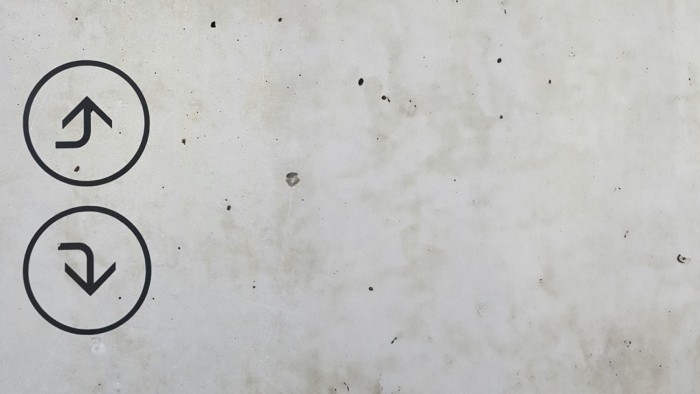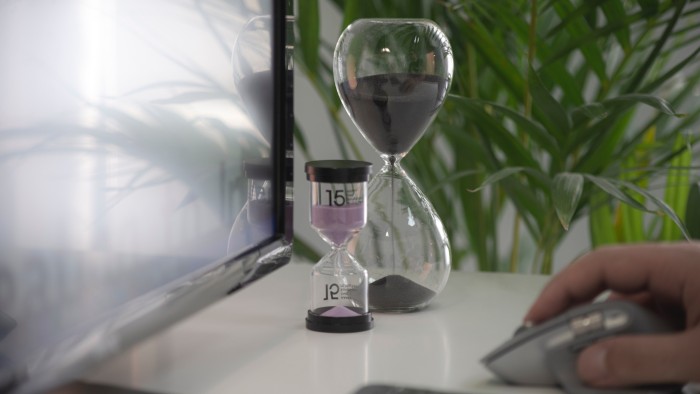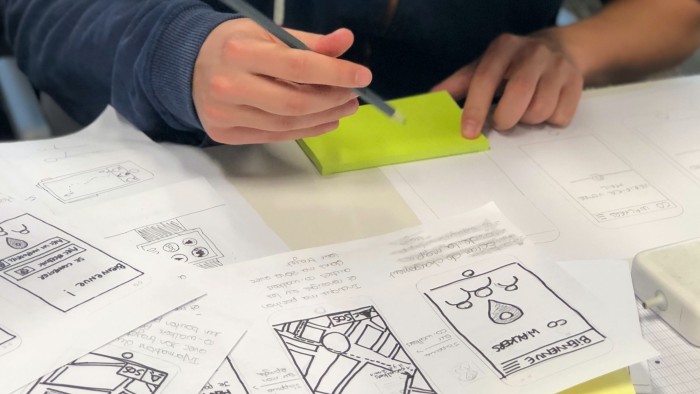How long does it take to develop a mobile app?
The development time of a mobile app is on average between 3 to 9 months. This will allow you to get a first version of your app fairly quickly. This is just an idea, many factors can vary the time it will take to design and develop.

We are often asked the question "How long does it take to develop an app?", and often we want to answer that your app will never be "finished". Like many digital products, you need to update or upgrade your app and you will probably not stop at a v1.0.
The design phases of a mobile app
First and foremost, it is important to understand the main phases of creating a mobile app. Everything starts with an idea, your idea, which can be more or less precise, then we have :
- The strategy phase
- The design phase
- The development phase
- The testing phase
- The release on the stores
- Continuous evolution and maintenance
Each step is important and will take time, but our advice to you today is this: take the time you need, especially at the very beginning of your project. If you invest time in the strategy and design phases, you ensure stability for the next steps. By having a good foundation, you reduce the risk of unforeseen events or strategy changes during development.
The level of complexity of your product
One of the elements that can affect the production time of an app is its complexity. Indeed, some apps have very few features or specifications and are therefore much simpler and faster to produce. Others are more complete, requiring more work before, during and even after their development. The latter will obviously be more complex and time consuming to develop.
Designing a mobile app is like building a house. The house is not "finished" the day you receive the keys, you must then decorate it, furnish it, move in and make it your home. Later on, you may want to improve it, repair plumbing that has been damaged over the years, break down a wall, change the furniture layout, etc.
A v1.0 to start
Sometimes, you have to make choices that in the end allow you to move forward faster! To avoid that your app takes 9 months or more to develop, it can be interesting to make compromises in order to release a first version. A v1.0 can include only a part of the functionalities, can be simpler in order to allow the app to be put in production more quickly. It is then possible to enhance the product by adding new features or improvements little by little.
By choosing to reduce the development time and release a first version faster, your app can start bringing you sales or customers in as little as 3 to 6 months.
This approach also allows you to get user feedback quickly, which can allow you to adapt future versions if necessary, and this after a few months of development and not after 10 to 12 months of work.
Communication throughout the project
The exchanges with the different teams involved in the design and development of your product must be of high quality and efficient! If, for example, during the first phases, which allow you to define the functional specifications and discuss the first wireframes, communication is not effective, this can impact the rest of your project. Foundations that have not been sufficiently discussed and worked on will have a domino effect on the rest of the development.
It can happen that the design or the development is slowed down or stopped, because the teams do not have the content or the information necessary to make the project progress properly. Project management is therefore essential to identify potential friction points and to ensure that the deadline is not (or only slightly) delayed.
From the moment you start creating your mobile app, you are committing to a digital product. Once the deadline is reached and your app is available on the stores, the project is not over yet. Your app will need maintenance, and updates. Over time new features may be added, or you may have ideas for improvements and you will need to evolve and live your app. The time to develop your app doesn't really matter anymore, you now have a long term project that you need to keep improving.


